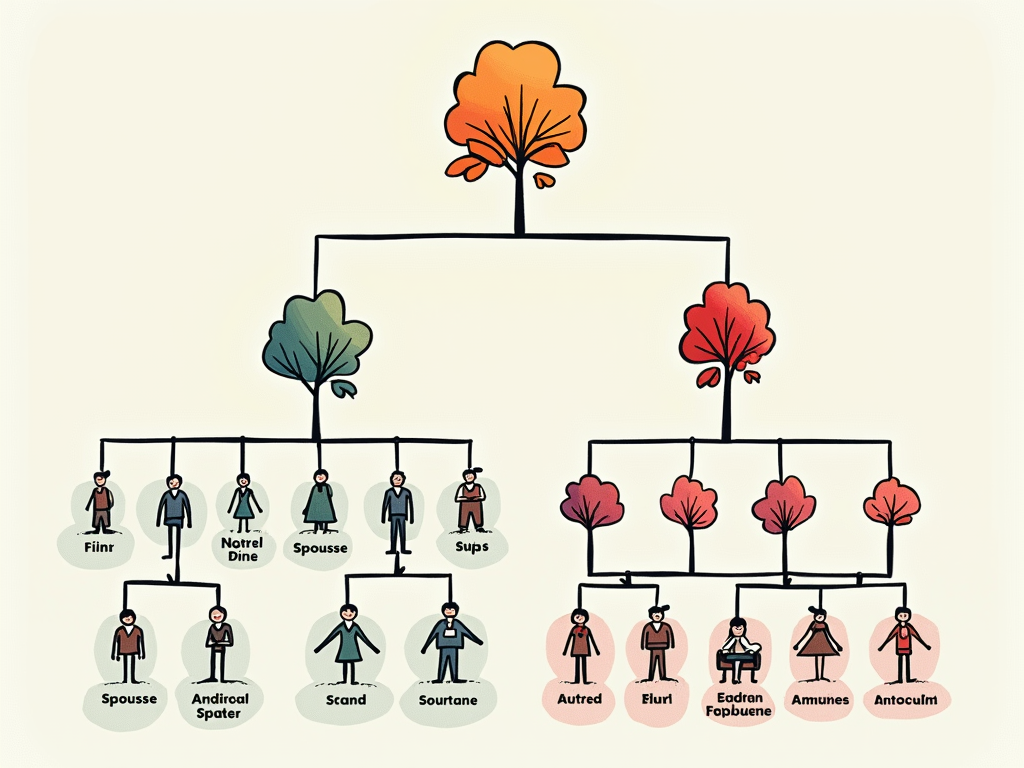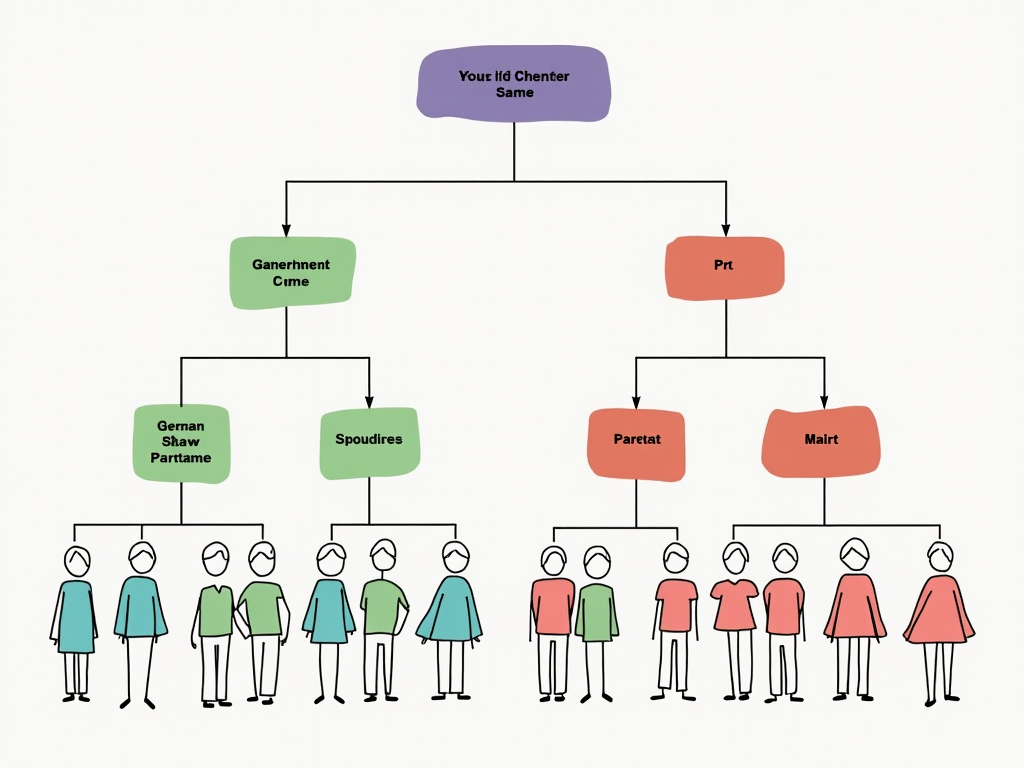Estate planning is like setting a secure anchor in stormy waters. For investors and private savers, it is crucial that their assets are distributed according to their wishes, to avoid family conflicts. Legal succession can serve as a guide, while a customized will functions as a precise tool to implement personal desires. This article explores the nuances of legal succession and shows how to effectively draft a will to avoid disputes and optimally manage the inheritance.
Legal Succession: The Legal Key to Your Inheritance

Legal succession in Germany ensures that a deceased person’s estate is distributed according to defined rules in the absence of a will or succession agreement. These rules, anchored in the Civil Code (BGB), are essential for bringing clarity and order to the inheritance and for avoiding potential family conflicts.
Among the fundamental principles of legal succession, the arrangement of heirs in different lines is decisive. The first line includes direct descendants such as children and grandchildren. This group has priority in the division of the inheritance. If there is no heir in this line, the second line comes into effect, which includes the deceased’s parents and their descendants. Finally, the third line governs the inheritance rights of grandparents and their descendants.
Another central principle is succession per stirpes. If a potential heir dies before the testator, their descendants replace them. This also ensures that grandchildren receive their share if their parents are deceased. This subtle regulation witnesses the principle of representation, which states that living heirs represent their “lineage” and thus exclude younger generations, as long as they themselves have a right to inheritance.
Typically, the children of the first line inherit in equal parts. The surviving spouse is entitled to a legally guaranteed share, the amount of which depends on the matrimonial property regime. Without descendants or living children, the parents or siblings inherit.
In addition to a properly structured framework, legal succession has as a safety net the right to a mandatory share. This ensures that close relatives such as children, parents, or spouses receive a minimum share, even in the presence of a will that seems to ignore them. This guarantees them, in principle, half of their mandatory share.
All these regulations create a clear framework. However, thanks to the freedom to test, there remains room for individual decisions. A will or succession agreement offers the testator the opportunity to deviate from the rigid legal structure and to take personal wishes into account. A will, whether handwritten or notarized, is legally binding, while succession agreements must always be formalized in front of a notary. The limits of this freedom are marked by the right to a mandatory share, which cannot be ignored.
In conclusion, it is important to emphasize that regular reviews of testamentary provisions and well-considered estate planning can significantly contribute to family peace. Through lifetime transfers, tax considerations, and possibly the appointment of an executor, potential conflicts and tax disadvantages can be minimized.
The Will as a Key to Individual Estate Management

A will is not just a legal document; it is the personal expression of final wishes. It serves as a crucial anchor to detail and clearly regulate the distribution of assets in the event of death, according to individual wishes. Through meticulous drafting of a will, testators can ensure that their values and legacies are passed on in accordance with their wishes, thereby avoiding conflicts among heirs.
A will can be drafted in two ways: by hand or before a notary. The handwritten variant requires the complete drafting and signature of the testator, while notarization requires professional advice and certification by a notary. This flexibility in procedure underscores the central role of the will in estate planning.
The content of a will is varied and can include, in addition to the appointment of heirs, specific instructions such as legacies or division provisions. By appointing heirs, testators can determine who should benefit from their inheritance and to what extent. A will allows for a conscious deviation from legal succession, although the freedom to test is still limited by the rights of mandatory shares of close relatives such as spouses or children, who must also be considered in case of disinheritance.
Also notable is the Berlin will, in which spouses mutually designate each other as universal heirs. Only after the death of the last spouse do the children become heirs. However, this construction can create a high tax burden, as inheritance taxes can be associated with two phases – an important aspect to keep in mind.
After death, the practical implementation of the will begins. For this purpose, the document must be opened at the probate court. It contains instructions for the management and liquidation of the assets, with the testamentary provisions carried out by an executor or the heirs themselves. Any debts that may be part of the inheritance must also be managed.
Finally, a will is more than just a means of securing the estate. It is an essential tool for preserving family peace and implementing individual wishes after death. Careful custody and regular review of the will ensure that it always meets current life circumstances and legal requirements.